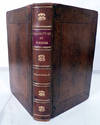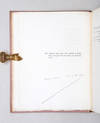
The Truth About Death and Dying
by Umezawa, Rui
- New
- Hardcover
- Condition
- New
- ISBN 10
- 0385659083
- ISBN 13
- 9780385659086
- Seller
-
Ottawa, Ontario, Canada
Payment Methods Accepted
About This Item
Synopsis
Rui Umezawa won a scholarship to study in Beijing at a time when he had no idea what he wanted to do in life. “It was the best thing to ever happen to me, because seeing things like the Great Wall and the Potala Palace in Tibet made me realize how wondrous life can be. I wasn’t as aimless when I got back to Canada. I wanted to do and accomplish things. Life has changed direction on me many times since, but at least it’s always had direction since then.” Born in Tokyo in 1959, Rui was four years old when his family left Japan. His father was a theoretical physicist and the family followed his career to various places, Rui’s favourite being Naples, Italy. “Blue skies, blue water, great food, great music. There, my schoolmates showed curiosity over the fact that I was Japanese, but I never felt any hostility. Things changed after we moved to the States. Canada wasn’t any better.” He thinks moving around a lot made him more open-minded. “On the other hand, I’ve never had a friend who’s known me since I was little.” The family lived in Milwaukee and then Edmonton, where he finished school. He didn’t follow in his father’s footsteps and pursue the sciences. “After a lifetime of hearing from everyone just how great a physicist my father was, I got intimidated.” It was only later, after his father passed away, that he would try to read physics written for the layman to get a better understanding of his father’s discipline, and “what had been occupying his mind so much when he was alive.” Rui chose instead to study comparative literature. His high school guidance counsellor heard he wanted to pursue “a course of study that would lead to promoting cross-cultural understanding.” Rui was intrigued by the idea of studying literature as something integral to the social and cultural system out of which it arises. “This desire was partly due to my curiosity about my own Japanese heritage, and partly due to my experiences growing up as a visible minority.” So he tried an introductory course when he started at the University of Alberta in Edmonton, and was inspired by his first professor to choose it as a major. “He was an American whose specialization, among other things, was Third World literature, and he always had stories to tell about growing up in the American South or living in Africa as a scholar.” He later specialized in modernism and literary theory. Exposure to communication theories combined with his later experience as a journalist and a PR specialist developed in Rui a fascination with mass communication. “I mean everything from ads on the sides of buses through the news on the front page of the Globe and Mail … I take great interest in how narrative might evolve with digital technology. I am fascinated by how some news stories make the front page of a newspaper while others are buried, and what message this sends out.” Newspaper work brought him to Toronto, where he lives with his wife and children. In 1988, he had been working as a reporter and editor at the Alberta Report for about a year. “Alberta was in an economic slump at the time, while Toronto was booming. My wife and I moved out here, and I landed a job fairly quickly at the Catholic Register . I was there only for a few months, though, because my wife became pregnant and I needed a better income.” He found a job at the Consulate General of Japan, assisting with public relations and cultural activities, but continued as a freelance writer to publish articles, reviews and essays in The Globe and Mail , The Toronto Star , and Venue Magazine , and short stories in Descant magazine. He travelled to Japan regularly from the early seventies to the early nineties; while growing up, he learned much about Japanese life from magazines sent by friends and relatives, and later kept up-to-date through his work at the consulate. One of the first things he published was an article on Chanoyu, the Japanese tea ceremony. He recently published a children’s book, Aiko’s Flowers , about ikebana, the traditional art of flower arranging, and the value of passing on traditions from generation to generation. He has a black belt in karate, and performs as a storyteller with an amateur troupe, reinterpreting traditional Japanese folktales. “I literally have to give voice to my characters, which compels me to understand them better. In some instances, this winds up exposing the darker sides of my own personality… This, in turn, helps me to develop the characters that occupy my original work.” Extremely proud of his Japanese cultural heritage and Japan’s accomplishments, he finds the country’s atrocities during the war especially distressing. “Growing up outside Japan, I also had a very real need to feel this pride. But all of Japan’s successes -- from the sublime beauty of ukiyo-e woodblock prints to the Sony Walkman -- cannot take away the shame that remains from the war. This tension between pride and shame was something that drove the narrative of the book to a great extent.” From the Hardcover edition.
Reviews
(Log in or Create an Account first!)
Details
- Bookseller
- Pine Tree Books
(CA)
- Bookseller's Inventory #
- 8938092700
- Title
- The Truth About Death and Dying
- Author
- Umezawa, Rui
- Format/Binding
- Hardcover
- Book Condition
- New
- Quantity Available
- 1
- ISBN 10
- 0385659083
- ISBN 13
- 9780385659086
- Publisher
- Doubleday Canada
- Place of Publication
- Toronto
- This edition first published
- 2002
Terms of Sale
Pine Tree Books
About the Seller
Pine Tree Books
About Pine Tree Books
Glossary
Some terminology that may be used in this description includes:
- New
- A new book is a book previously not circulated to a buyer. Although a new book is typically free of any faults or defects, "new"...
- Cloth
- "Cloth-bound" generally refers to a hardcover book with cloth covering the outside of the book covers. The cloth is stretched...
- Leaves
- Very generally, "leaves" refers to the pages of a book, as in the common phrase, "loose-leaf pages." A leaf is a single sheet...
- Jacket
- Sometimes used as another term for dust jacket, a protective and often decorative wrapper, usually made of paper which wraps...


